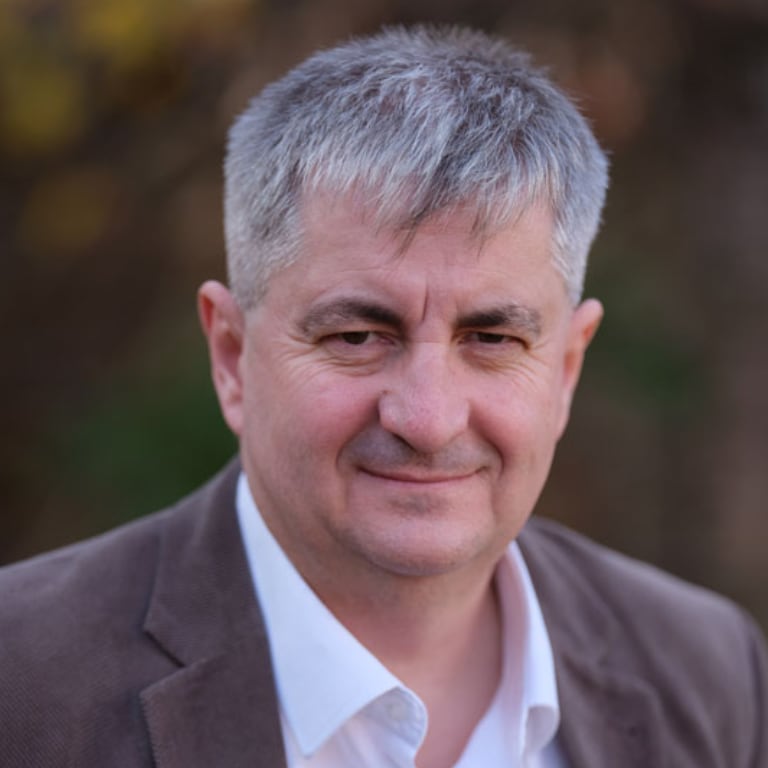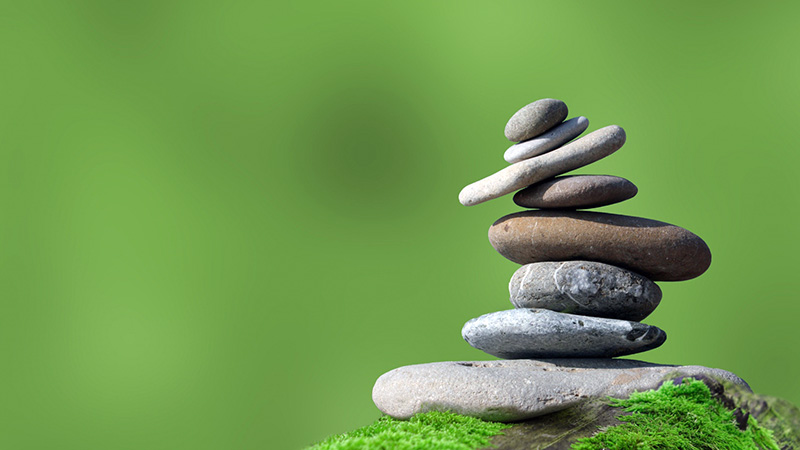We check the news, watch the number of the deceased and the newly infected, the desperate, heroic struggle of healthcare workers, the misery about vaccines, the battle between the vaccinated and those who oppose it. Meanwhile, we are struggling with confinement, fear of the virus, loss of our freedom, our control, and many people miss their loved ones. Uncertainty has been weighing on us for a long time, yet every single day we nurture the hope in ourselves that it will be better, easier, because “once there will be peace”. We talked with Professor Tamás Tényi, Vice-Dean of our School, head of the Department of Psychiatry and Psychotherapy about what can help us survive and process this unprecedented period burdened with losses.
Written by Rita Schweier
 - As I often say and also hear from many people of my age, people in their 50s, this has never happened before in our lives because unlike our grandparents we did not experience World War II, historical tragedies. This epidemic, with its tragedy and difficulties, has hit us all like a bucket of cold water. We hear that famous people whose books, music, performances we like, died. Although the distressing feeling resolves with the availability of vaccines, the dramatic numbers, and the stories behind them are still threatening even today. At the same time, I think many of us did not face and are not facing the fact that our lives are in danger, it is not really realised. It is a kind of “threshold state of stress” that people have tried and are trying to process in their own ways. The two extremes in this were the initial panic, overspeculation, and the trivialisation of the pandemic. In parallel, our lives have been transformed. We smile at each other in a face mask - though this is the slightest problem -, we have been locked down and we cannot engage in many activities that have been parts of our lives. Quarantine situation - in the case of a positive test - also involves a serious psychological burden. Vaccines are a ray of hope in this dramatic situation.
- As I often say and also hear from many people of my age, people in their 50s, this has never happened before in our lives because unlike our grandparents we did not experience World War II, historical tragedies. This epidemic, with its tragedy and difficulties, has hit us all like a bucket of cold water. We hear that famous people whose books, music, performances we like, died. Although the distressing feeling resolves with the availability of vaccines, the dramatic numbers, and the stories behind them are still threatening even today. At the same time, I think many of us did not face and are not facing the fact that our lives are in danger, it is not really realised. It is a kind of “threshold state of stress” that people have tried and are trying to process in their own ways. The two extremes in this were the initial panic, overspeculation, and the trivialisation of the pandemic. In parallel, our lives have been transformed. We smile at each other in a face mask - though this is the slightest problem -, we have been locked down and we cannot engage in many activities that have been parts of our lives. Quarantine situation - in the case of a positive test - also involves a serious psychological burden. Vaccines are a ray of hope in this dramatic situation.
- How can people survive this hectic life situation with common sense, without exaggeration, that is, find normality in the impossibility?
- Realism is needed in an emergency. You must know that there are dangers, and you must be able to act accordingly. It is not advisable to read the news all day, change TV channels from news to news, instead it is important to pay attention to other areas as well, to read something else, to listen to music, to talk about other topics. These coping mechanisms and sublimation techniques can help keep us from being overwhelmed by excessive, catastrophising anxiety. It is hard to be smart about how this can be done because everyone has their own solution, but we can help each other. An empathetic attitude, a benevolent conversation can lift the other person out of the fear if they are overly anxious, or we can just make aware the people on the other side who do not care about the events around them of what is happening. Yes, we must know that this is a dramatic situation, we have not lived in a state of imminent threat before. As a psychiatrist, I consider venting and conversation to be very important to maintain our mental balance.
- In any case, in the uncertainty and unpredictability of the present and the future, it is difficult to find anything to hold on to, even if vaccination offers some hope.
- There is no doubt that it is uncertain what the future will be like, but we must try to hold on to our modern worldview and trust in modern medicine. I will tell you a personal story to help: a year ago, I suffered a vertebral fracture due to an unfortunate accident, I also had surgery. With a lot of pain, ten nails and two bars in my waist, I lay at home, unsure whether I could regain my old physical abilities, recover at all, and how much constant pain I would have to live with. I could not think of anything better than writing a little about the neurological diseases of Frida Kahlo who struggled with her spinal problems all her life after her electrical accident. In this medical study, I sublimated my anxieties, and, in the footnote, I thanked dr. Attila Schwarcz, an excellent neurosurgeon who finally healed me, and I also expressed my gratitude to modern medicine.
My message is: you should never give up hope. The development of science is rocketlike and we can trust that. We must be careful not to slip into depressive hopelessness. Knowing that we are not alone, that we can stand side by side through effective communication helps. It is also important that we can humbly accept our destiny, our difficulties, what is given. We do not live in a Hollywood movie, even if we love these movies.
- Human relations have transformed, may have deepened, or become more important over the past year, as has solidarity.
- This is very important because the crisis not only means that there is hopelessness, but it can also be the engine of progress and development. Developmental psychologist Erik H. Erikson identified eight different stages that a person with a healthy developmental process goes through from infancy to late adulthood. In adolescence, we struggle with who we are, in our twenties with whether we have the ability to have an intimate and lasting relationship, and in our sixties with whether we can accept that we will die sooner or later. In addition to the acceptance and reworking of these identity crises, getting out of the accidental crises described by Gerald Caplan is often progressive in nature. These are crises that occur at random because of external, provocative factors, including those caused by a pandemic, which hit the personality unexpectedly, suddenly, and as a stroke of fate. Friedrich Nietzsche in his statement “Whatever does not kill you makes you stronger” emphasised the self-reinforcing aspect of the crisis as well.
In our current situation, communication with each other becomes more essential, we cannot be satisfied with talking only about superficial things when we hear that one of our acquaintances is dead. We can think about the purpose of our lives, what tasks we have, we can make an account of our lives. So, a crisis can reveal many depths from which we can benefit, strengthen, and knowing this, it is easier to carry the cross that a pandemic means.
